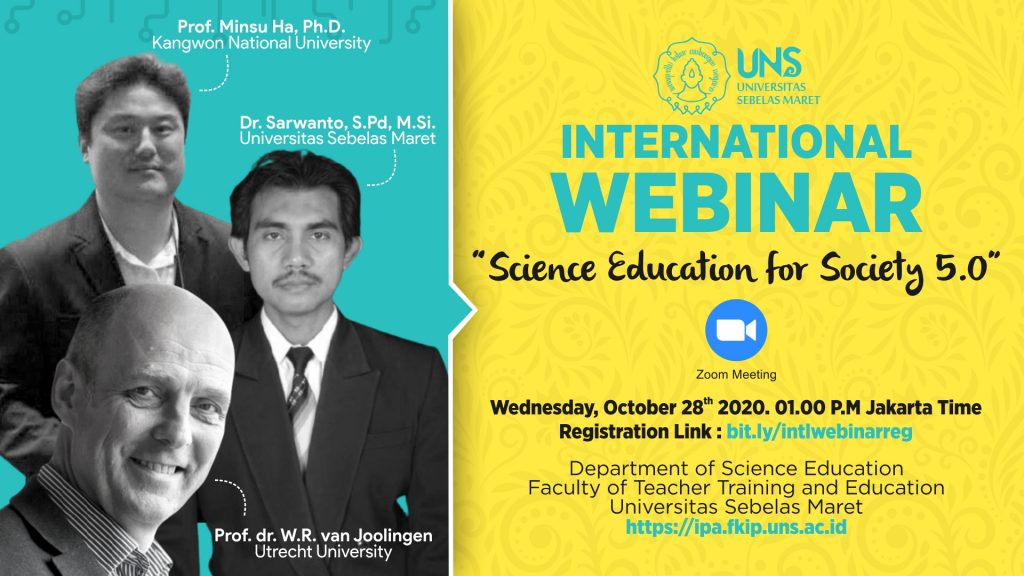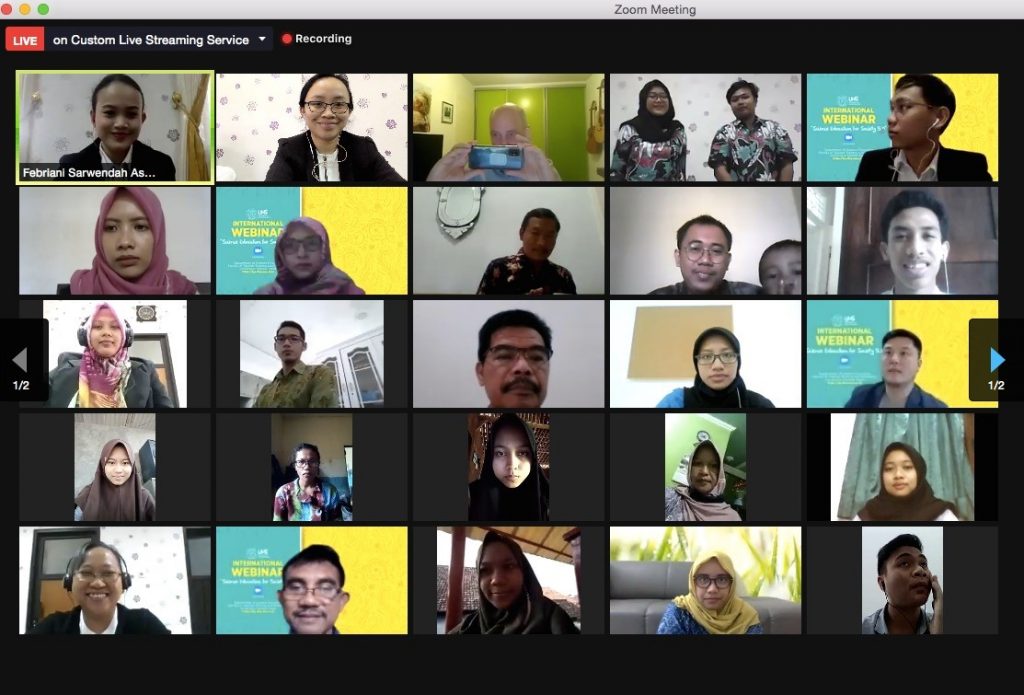

Today’s webinar is entitled Science Education for Society 5.0. Why should we be concerned about Society 5.0 while industrial revolution is still relevant to our education context? As we all know, the goal of Society 5.0 is to create a society focused on development of economic and societal challenges overcome in order to increase the people’s quality of life. How to achieve it? Education is one of the main ways. Through innovative learning, educators can enhance students to relate their science learning at school to the everyday experience.
This webinar was opened by Vice Rector for Partnerships and Planning Affairs, Prof. Dr. rer. nat. Sajidan, M.Si. There were 3 keynote speakers, their names are successively, Prof. dr. W.R. (Wouter) van Joolingen, Prof. Minsu Ha, Ph.D, and Dr. Sarwanto, S.Pd, M.Si. Prof. dr. W.R. (Wouter) van Joolingen talked about Lesson Study and Advances in Science Education, Prof. Minsu Ha talked about The Development of Assessment Tool Based Artificial Intelligence for Open-Ended Question: The Introduction of Research Trends and WA3I Project, and Dr. Sarwanto, M.Si talked about Optimizing Student’s Science Process Skills in Online Classroom. From this webinar, we can conclude that Science Education in Society 5.0 is “the next step” of previous science education. Here, Science Education is deeply addressed to ensure student understanding about the main idea of the learning topics and its linkage to the real life situation. Furthermore, this broad understanding of course will help the students to solve society problems based on their science based understanding. In addition, this covid pandemic gives big challenges and transformation in educational system. In order to implement qualified science learning as mentioned above, teachers should increase their creativity in designing and conducting science learning in online classrooms, including triggering student activity both in cognitive and psychomotor areas. Apart from the learning process, now, measuring the student’s understanding in cognitive area is not only by manual scoring. This system helps teachers to notice student’s misunderstanding and learning achievement. So, it will assist teachers in improving their teaching experience. (FSAN)

In case you missed the webinar, please visit : https://youtu.be/mD9IZE_8uWc
You can also download the slides here :
DOWNLOAD

